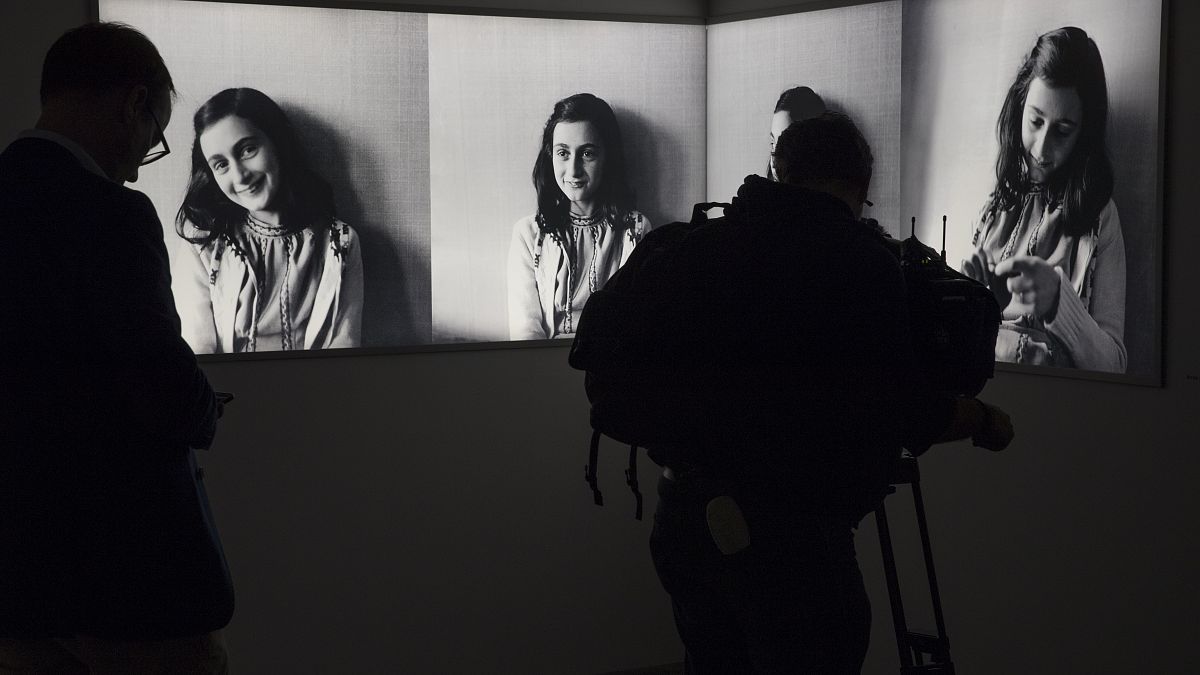A cold case team has reached what it calls the “most likely scenario” of who betrayed Jewish teenage diarist Anne Frank and her family.
An investigation claims to have reached the “most likely scenario” of who betrayed Jewish teenage diarist Anne Frank and her family.
A cold case team says that it could have been Arnold van den Bergh, a prominent Jewish notary who disclosed the secret hiding place of the Frank family to save his own family from deportation and murder in Nazi concentration camps.
It is outlined in a new book called “The Betrayal of Anne Frank A Cold Case Investigation,” by Canadian academic and author Rosemary Sullivan.
“We have investigated over 30 suspects in 20 different scenarios, leaving one scenario we like to refer to as the most likely scenario,” said filmmaker Thijs Bayens, who had the idea to put together the cold case team.
Bayens was quick to add that, "we don’t have 100% certainty.”
The Franks hid with four other Jews from July 1942 to August 1944, when they were discovered and deported to concentration camps.
Anne's father, Otto Frank, was the only member of the family to survive the war. Anne and her sister died in the Bergen-Belsen concentration camp. Anne was 15.
The diary Anne wrote while in hiding was published after the war and became a symbol of hope and resilience that has been translated into dozens of languages and read by millions.
But the identity of the person who gave away the location of their hiding place has always remained a mystery, despite previous investigations.
The team's findings suggest that Otto Frank was one of the first to hear about the possible involvement of Van den Bergh, a prominent member of the Jewish community in Amsterdam.
A brief note, a typed copy of an anonymous tip delivered to Otto Frank after the war, names Van den Bergh, who died in 1950, as the person who informed German authorities in Amsterdam where to find the Frank family, the researchers say.
The note was an overlooked part of a decades-old Amsterdam police investigation that was reviewed by the team, which used artificial intelligence to analyze and draw links between archives around the world.
The Anne Frank House museum in the canal-side Amsterdam building that includes the secret annexe welcomed the new research but said it also leaves questions unanswered. The museum gave the researchers access to its archives for the cold case project.
“No, I don’t think we can say that a mystery has been solved now. I think it’s an interesting theory that the team came up with," said museum director Ronald Leopold.
"I think they come up with a lot of interesting information, but I also think there are still many missing pieces of the puzzle. And those pieces need to be further investigated in order to see how we can value this new theory.”
Bayens said the hunt for the betrayer was also a way of looking for an explanation of how the horror of the Nazi occupation forced some members of a once close-knit Amsterdam community to turn on one another.
How did facism bring people “to the desperate point of betraying each other, which is an awful, really awful situation?” he said.
“We went looking for a perpetrator and we found a victim,” Bayens said.
**Watch the full interview with Vince Pankoke, former FBI Special Agent in charge of investigating the Anne Frank Cold Case Project, in the video player, above. **
